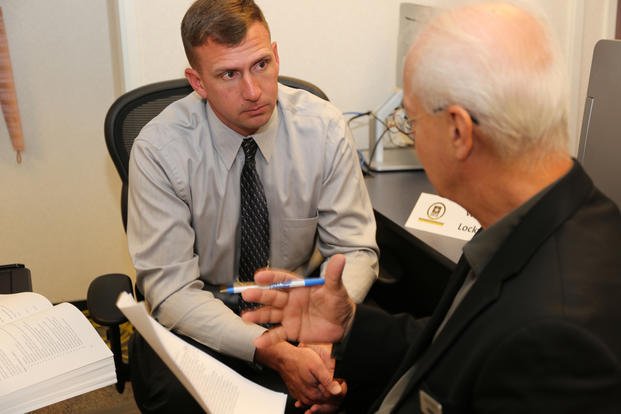It's frustrating, I know.
You're trying to switch from one career field to another, and no one seems to believe you can make the transition. In fact, no one is even willing to give you a shot. You want to look forward, and recruiters insist on looking back. They believe that a person can only do what they have already done.
They're convinced that Jack Welch got it right in his recent book, "Winning"; past performance is the best predictor -- and the only reliable predictor -- of future performance on the job.
Does that mean it's impossible to shift careers? We better hope not. In today's turbulent world of work, a lot of us are going to need to change careers, probably more than once. What this view does mean, however, is that you must change your job search as well as your career.
You simply cannot look for a job the way you always have. If you want to find a position in a new career field, you have to act as if you are a first-time job seeker. Because that's what you look like, at least to a recruiter.
So what does a first-time job seeker with five, 10 or maybe even 20 years of work experience do? The following 10 steps will get you started:
Identify and Highlight Your Crossover Skills
Step 1. Throw out your old resume. It no longer applies to the employment candidate you are (or hope to be).
Step 2. Do your homework and find out what skills are required for an entry-level position in your new career field. Try the professional association for your new field; check out Monster.com's Job Profiles for a detailed look at specific career fields.
Step 3. Determine which, if any, of the skills required in your new field were also required in your former field. In many, perhaps most cases, the crossover will be limited to enabling skills such as the ability to work in a team or to meet tight deadlines. They are important and shouldn't be ignored, but they are also not as persuasive as direct skills such as using a specific kind of software or knowledge of the standards required for performing certain tasks in a certain setting. Of the crossover skills you identify, determine which you have applied successfully in your career to date.
Step 4. Rewrite your resume by illustrating your experience and using the skills that recruiters will look for in employment candidates in your new field. Make sure you present not only what you did (with those skills), but also how well you did it.
Identify and Reinforce Your Weak Points
Step 5. Do some networking and find a hiring manager (or two or three, if possible) in your new field. I realize that's easier said than done, but you may locate them by using:
- Your college and/or graduate school alumni association;
- The membership of your new field's professional association, particularly any local chapter in your area;
- a discussion group (called a "newsgroup" on the internet) that focuses on your new field).
Step 6. Ask the manager(s) to review your resume as if they were evaluating a candidate for an entry-level position with their organization. What you would like them to do is to identify any "application breakers" -- any gaps in your credentials that are so glaring, they would derail your prospects for employment.
Step 7. Fill the gaps. Go back to school and acquire the skills that hiring managers believe are essential to successful job performance. They're the only opinion that counts. It's hard enough to look for a job, so going back to school at the same time is hardly a trivial undertaking. It is, however, worth the effort. Not only will you be making a critically important addition to your credentials, but you may also meet teachers and other professionals who can be helpful in your job search.
Step 8. Adjust your resume. In the Education section, add an entry for each of the skill acquisition courses you're taking with the notation ongoing. That information sends two important signals to a recruiter:
- You are in the process of acquiring the skills that their customer -- that hiring manager -- is likely to want in an applicant.
- You are a candidate who has both the sense of responsibility and the necessary commitment to their field to be successful.
Be Realistic with Yourself and Candid with Your Spouse or Partner
Step 9. Recognize what you're asking a recruiter to do when you apply for a position in a career field where you have no experience. While you know you have the maturity of perspective and the track record of work experience necessary to move laterally into the job, the recruiter uses a different set of criteria and thus often arrives at a very different conclusion. There are always exceptions to this rule, but in general, a recruiter will select the most capable traditional candidate over even a more capable, but nontraditional, candidate (that's you) every time. Why? Well, for two reasons:
- They are expert recruiters, not experts in the field for which they're recruiting. As a consequence, they normally look only at candidates who precisely match the specifications listed by the hiring manager.
- Like most of us, they are risk averse. And selecting a candidate who does not have a demonstrated record of past performance is taking a big risk. If the candidate doesn't work out, the candidate won't be blamed. The recruiter will be.
Step 10. Make sure your spouse or partner understands the nature of the challenge (as well as the opportunity) in your making a career shift. They should not be starry-eyed about how long it will take, the pressure and frustration that may be created and the setbacks that may come along before you achieve success. You're not embarking on the "impossible dream," but you are setting out on the "incredibly difficult dream," and if you want their support, they deserve to know that upfront.
It is possible to breach the barricade of the "you can't do it if you ain't done it" perspective. To do so, however, you will have to adopt new practices and forge new patterns of behavior ... in your job search as well as in your profession, craft or trade.
Peter Weddle is a veteran as well as the author or editor of more than two dozen employment-related books, including the recently released "The Career Activist Republic" and "Work Strong, Your Personal Career Fitness System," one of the most innovative career success books in print.
Want to Know More About the Military?
Be sure to get the latest news about the U.S. military, as well as critical info about how to join and all the benefits of service. Subscribe to Military.com and receive customized updates delivered straight to your inbox.











